On April 28, the lecture series of "HUST-NUS Academic Lecture Series" of Materials Science and Engineering were successfully held. Upon the invitation of Professor LU Xing from the School of Materials Science and Engineering, Professor CHI Chunyan from the Department of Chemistry, National University of Singapore (NUS) delivered a lecture entitled "π-Structures with Different Topologies: Synthesis, Aromaticity and Electronic Properties" and Professor WU Jie gave a talk about "On-demand Automated Synthesis of Organic Small Molecules". The lectures were hosted by Prof. LU Xing and more than 50 students and researchers from HUST, Tianjin University, Jilin University and so on have attended the event online.
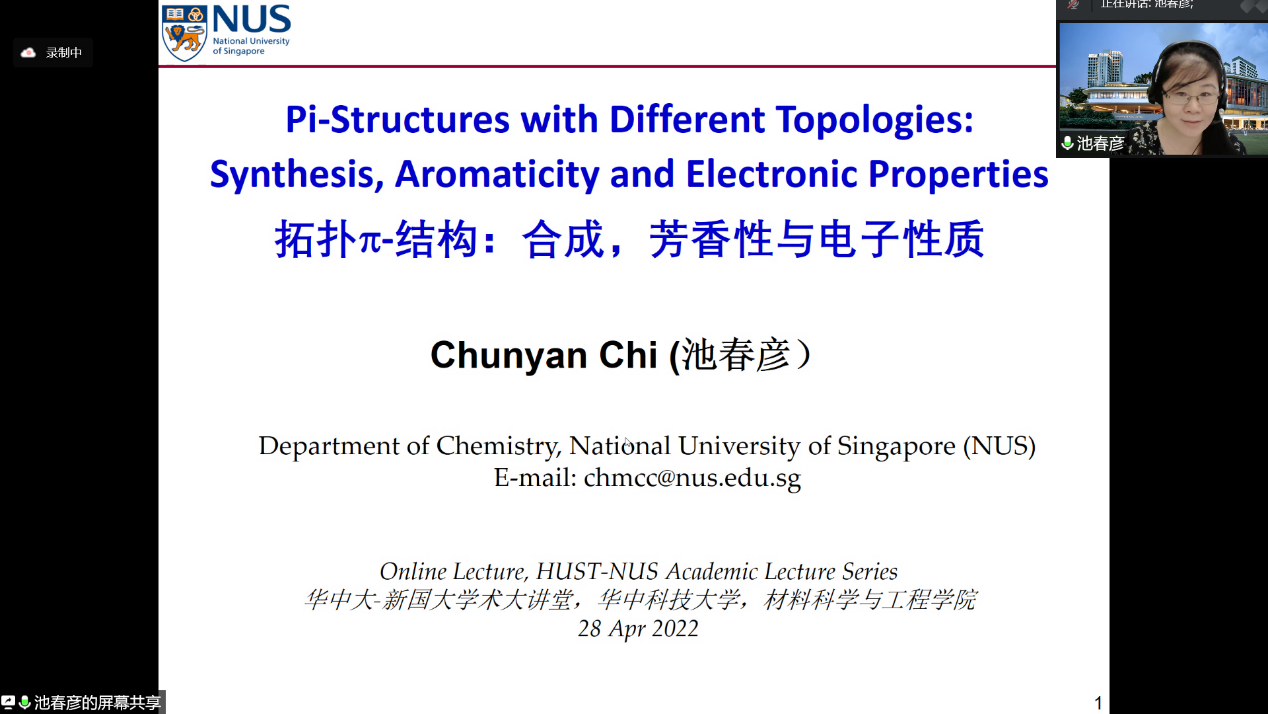
Professor CHI Chunyan delivered the speech
In the report, Associate Professor CHI Chunyan systematically introduced the recent progress of her research group in the construction of stable novel topological π-structures and their properties based on acenes. The acene molecules are a collection of very important p-type organic semiconductor materials with high carrier mobility, but with the increase of ring number, the enhanced diene feature leads to the deterioration of the chemical stability of acenes. Therefore, it is a very interesting topic to study the improvement of the stability of acenes. To this end, CHI's team has designed and synthesized a series of novel π-conjugated molecules, and highlights four types of novel topological structures, namely, Extended Heterocyclic Quinodimethanes, Peri-acens, Zigzag Edged Carbon Nanobelt and others, together with their physical properties, aromaticity and diradical character.
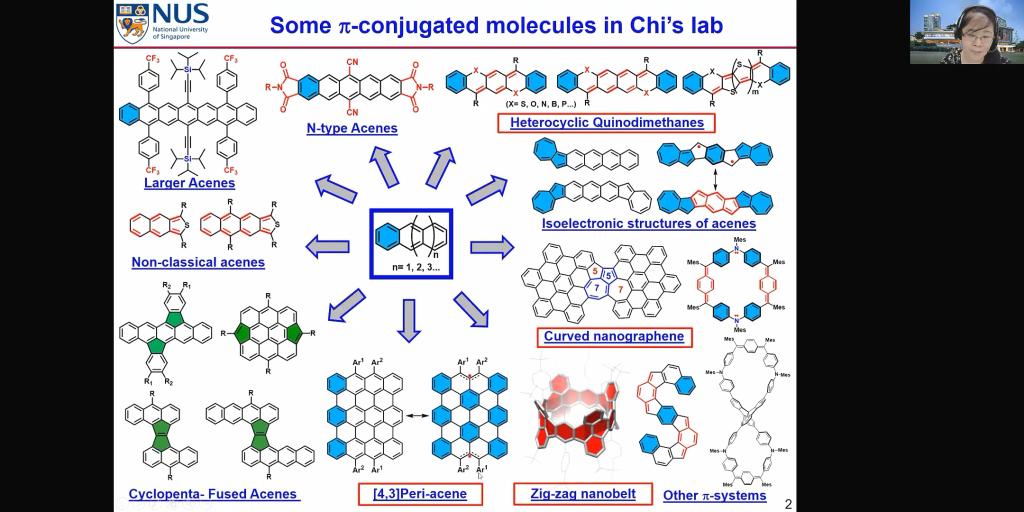
Typical π-conjugated molecules synthesized by CHI Group during recent years
Then, Associate Professor WU Jie introduced the progress of his team in the field of organic synthesis. The continuous flow organic synthesis currently faces many problems such as difficulties in performing parallel screening, clogging caused by solids, solvent/reagent incompatibility for multistep synthesis, etc. As a consequence, WU's team has designed a variety of flow reactors like "closed capillary" reactor, which have greatly improved the above problems. With these achievements, WU further illustrated the research in Gas Feedstocks, Photo-Driven C-H, Si-H, B-H activation, and End-to-End Drug Synthesis.
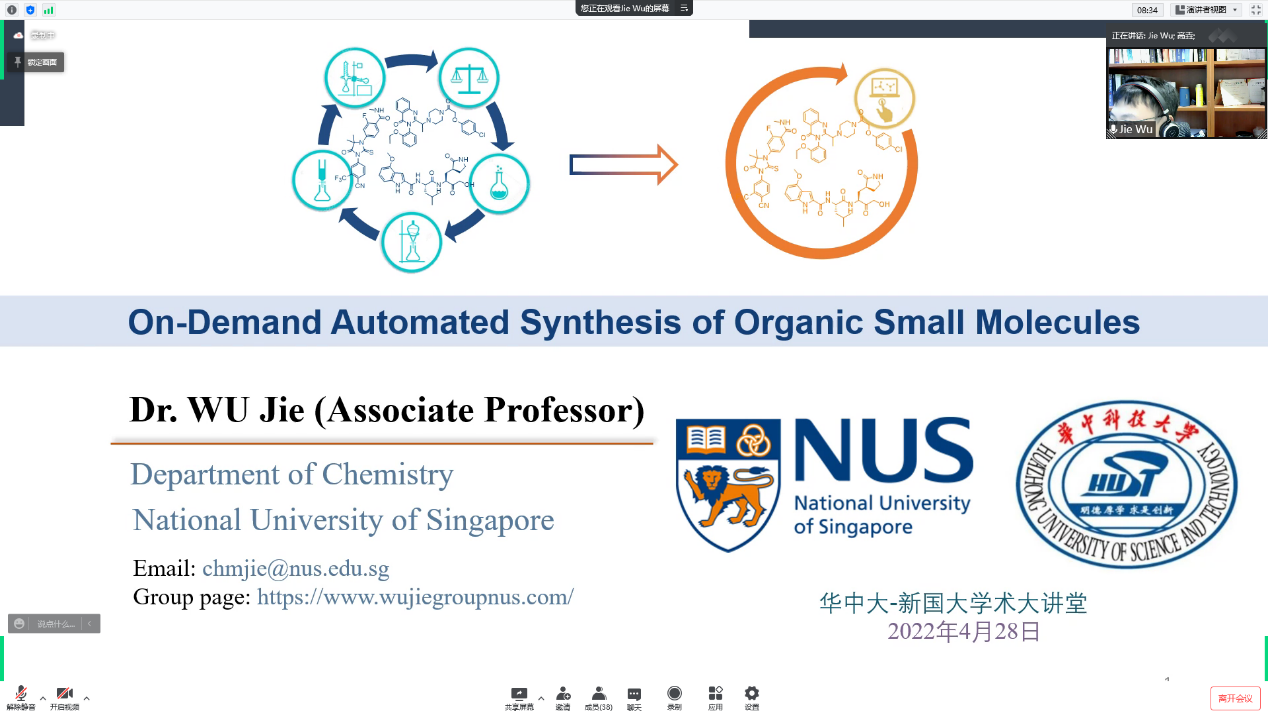
Professor WU Jie delivered the speech
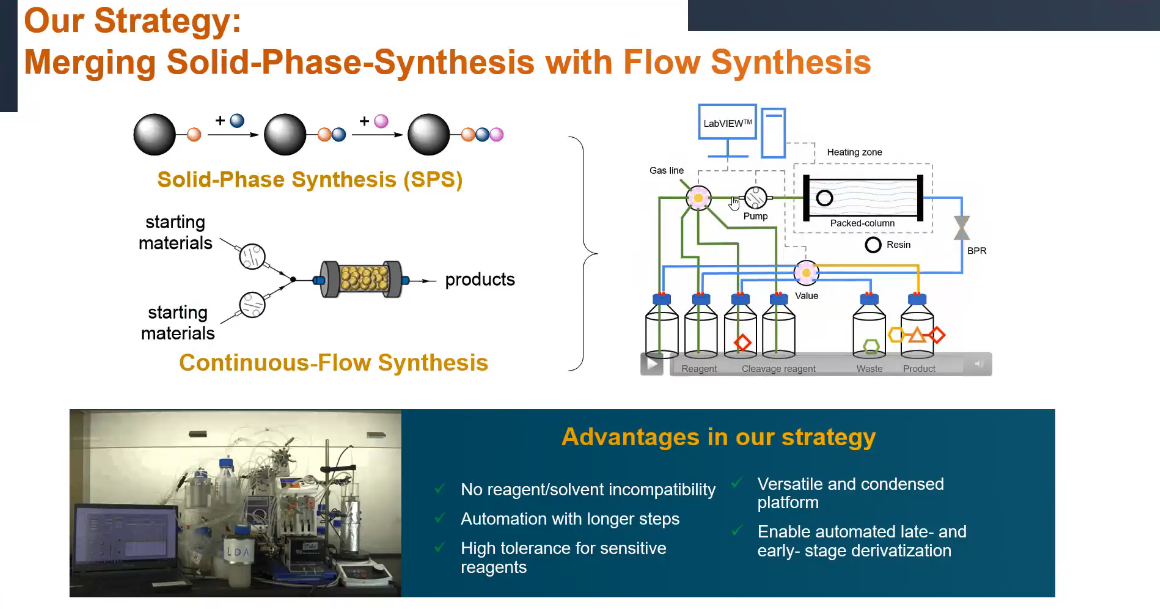
On-Demand Automated Synthesis of Organic Small Molecules
During the Q&A session, Professor CHI and Professor WU had a full exchange with the participating students and teachers. In particular, Professor WU and Professor GAO from the School of Materials Science and Engineering, HUST, further discussed the limitations of flow synthesis and the precision of automated organic synthesis. The communication was relaxed and interesting, which fully mobilized the enthusiasm of the teachers and students, providing new ideas and directions for the crossdisciplinary in materials and chemistry.
Introduction to Speakers
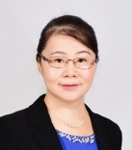
Professor CHI Chunyan received her PhD degree (with Summa Cum Laude) from the Max-Planck Institute for Polymer Research under the supervision of Professor Gerhard Wegner in 2004. Then she conducted her postdoctoral research with Professor Guillermo C. Bazan in the University of California at Santa Barbara. She is now a tenured Associate Professor in the Department of Chemistry, National University of Singapore. Her research interests are synthesis of extended π-electron systems with novel structures, aromaticity, organic diradicaloids, dyes, liquid crystals and functional materials for organic electronics and sensors. She received Asian Core Program Lectureship Awards from Japan (2013), China (2014), Taiwan (2014) and Hong Kong (2019), Young Chemist Award from Department of Chemistry, NUS in 2016, and Distinguished Lectureship Award from Chemical Society of Japan in 2017. She is the advisory board member of Journal of Materials Chemistry C, Materials Advances, Chemistry-A European Journal and Organic Letters etc.

Professor WU Jie received his BSc. in Beijing Normal University. From 2006-2012, he pursued his PhD study with Prof. James S. Panek at Boston University working on natural product total synthesis. In his postdoc research at MIT with Prof. Timothy Jamison and Prof. Alan Hatton, Dr. Wu has been exposed to the hard core of continuous flow chemistry. Since joining NUS in July 2015, his research group at NUS Chemistry Department has been focusing on flow synthesis, automated synthesis, and photocatalysis. In July 2021, Dr. Wu was promoted to tenured Associate Professor. Professor Wu has published nearly 50 high-impact papers (e.g. Nat. Chem., Chem, JACS, ACIE, Nat. Commun.) since he joined NUS chemistry department. He is a recipient of NUS Young Researcher Award (2021), Yong Scientist Award (2020), Asian Core Program Lectureship Award (2017-2019), Thieme Chemistry Journal Award (2019), and NUS Chemistry Department Young Chemist Award (2018).
